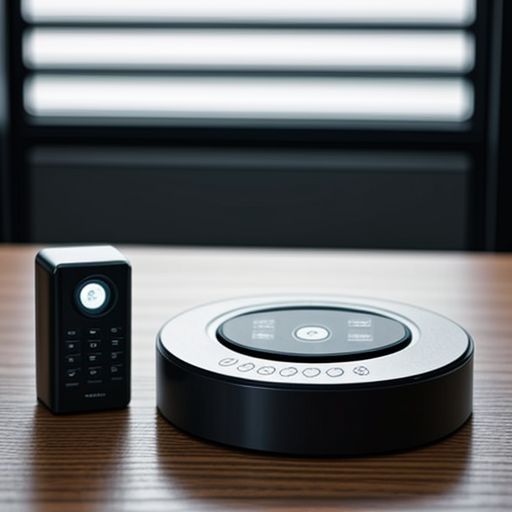Imagine this: you’re on vacation, miles away from home, and suddenly you get a notification on your phone. There’s been motion detected in your living room. Your heart races. Is it just the wind, or is someone trying to break in? With the right security system, you wouldn’t have to wonder. You could instantly check your security cameras, arm your alarm, and even notify the police – all from your phone.
Choosing the best security system can seem overwhelming. Wired or wireless? DIY or professionally installed? What about monitoring services? This article breaks down everything you need to know to find the perfect system for your home and peace of mind.
Understanding Different Types of Security Systems
Before diving into specific brands and features, let’s clarify what we mean by “security system.” In essence, it’s a network of devices working together to protect your property and loved ones. Here are some key components:
1. Control Panel: The Brain of the Operation
The control panel is the central hub of your security system. It connects all your devices and allows you to arm/disarm the system, customize settings, and receive alerts.
2. Sensors: The Eyes and Ears of Your Home
Sensors detect unusual activity and trigger alarms. Common types include:
- Door/Window Sensors: These alert you if a door or window is opened while the system is armed.
- Motion Sensors: Detect movement within their range, ideal for larger areas like living rooms.
- Glass Break Sensors: Trigger an alarm if glass is broken, indicating forced entry.
3. Sirens: The Loud and Clear Warning
Sirens emit a loud, piercing sound to scare off intruders and alert you and your neighbors.
4. Cameras: Your Eyes When You’re Away
Security cameras provide visual surveillance of your property, both indoors and outdoors. Many modern cameras offer features like:
- Live Streaming: View your cameras remotely from your phone or computer.
- Motion-Activated Recording: Capture footage when movement is detected.
- Two-Way Audio: Communicate with people near the camera.
5. Monitoring Services: Professional Back-up
Optional monitoring services connect your system to a 24/7 call center. If an alarm is triggered, the center will attempt to contact you and can dispatch emergency services if necessary.
Wired vs. Wireless Security Systems: Which is Right for You?
Wired Systems:
- Pros: More reliable connection, less prone to interference.
- Cons: Installation can be complex and expensive, requires professional help in most cases.
Wireless Systems:
- Pros: Easy to install yourself, portable, can be expanded easily.
- Cons: Signals can be vulnerable to interference, requires battery changes or recharging.
DIY vs. Professional Installation: Weighing the Costs and Benefits
DIY Systems:
- Pros: Lower upfront costs, more control over customization and installation.
- Cons: Requires more technical know-how, may not be as reliable as professional installation.
Professionally Installed Systems:
- Pros: Expert installation ensures optimal performance, often comes with warranty and support.
- Cons: More expensive upfront, less flexibility for future modifications.
Top Factors to Consider When Choosing a Security System
Now that you understand the basics, consider these factors to narrow down your choices:
1. Your Budget: How Much Are You Willing to Spend?
Security systems can range from under $100 for basic DIY kits to several thousand dollars for comprehensive professionally installed systems. Determine your budget upfront to avoid overspending.
2. Your Home Size and Layout: One Size Doesn’t Fit All
Consider the size and layout of your home when choosing sensor types and camera placement. A small apartment might only need a few basic sensors, while a larger home might benefit from a more extensive setup.
3. Your Lifestyle and Security Needs: Tailor the System to Your Routine
Do you travel frequently? Have pets? Do you live in a high-crime area? Answering these questions will help you choose features that align with your specific needs.
4. Smart Home Integration: Connect Your Security for Seamless Control
Many modern security systems integrate with smart home platforms like Amazon Alexa and Google Assistant, allowing you to control your security with voice commands and automate tasks.
5. Professional Monitoring: Added Peace of Mind, but at a Cost
Monitoring services offer an extra layer of protection but come with a monthly fee. Decide if the added expense is worthwhile for your needs and budget.
Research and Compare: The Key to Finding the Best Fit
Don’t rush into buying the first system you see. Take the time to research different brands, read reviews from other homeowners, and compare features and pricing. Look for systems that:
- Offer the specific devices and features you need.
- Have a user-friendly interface and mobile app.
- Provide reliable customer support and warranty options.
security.hanawaterbury.com/wp-content/uploads/2024/07/security-system-comparison-668ba3.jpg" alt="Best Home Security Systems Comparison" width="512" height="512">Best Home Security Systems Comparison
Conclusion: Investing in Your Peace of Mind
Choosing the best security system is an investment in your home, belongings, and most importantly, the safety of you and your loved ones. By understanding your needs, researching your options, and carefully considering the factors outlined in this article, you can find the perfect system to provide you with peace of mind and make your house feel like the safe haven it should be.
Have any questions about home security or finding the right system for you? Share your thoughts in the comments below!
